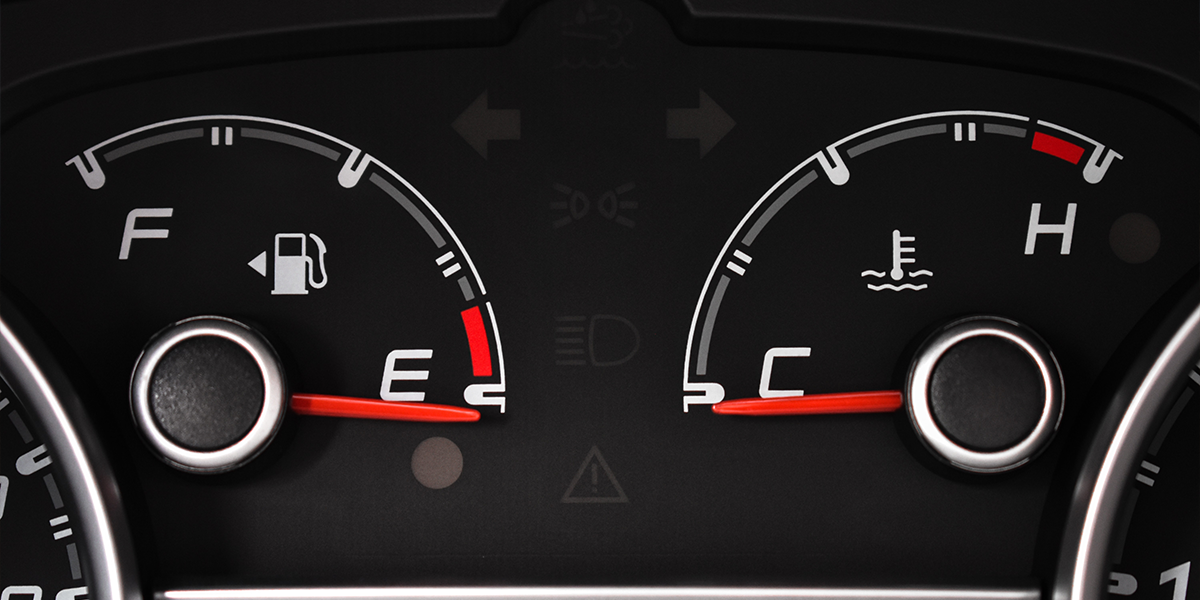Calculating your miles per gallon (MPG) is one of the best ways to measure your fuel economy and keep tabs on performance. Like the name suggests, it’s used to measure how many miles a vehicle can travel on a single gallon of fuel. What many motorists don’t expect are big fluctuations in MPG. So why does your MPG keep going up and down? In this article, we unpack everything you need to know about MPG and offer some common reasons why yours might be fluctuating.
Your fuel injectors are blocked
Blocked or damaged fuel injectors can compromise fuel economy and drag down your MPG. The injectors distribute fuel to each cylinder, ideally at a rate that matches the air and heat levels within the engine. Blocked or damaged injectors can limit the amount of fuel being sent to the cylinders and cause your MPG to drop. A quick clean can fix the problem or in a worst-case scenario you may need to replace the injectors.
Your fuel filter is blocked
Fuel filters play a critical role in catching impurities before they reach the engine and can damage sensitive components. “Why does my MPG keep going up and down?” – a clogged fuel filter could be the answer. In general, fuel filters should be switched out every 30,000 miles.
Your oxygen sensor is faulty
Instead of carburettors, newer vehicles use oxygen sensors to ensure the right amount of air and fuel is sent to the engine. Faulty sensors can throw off the balance and cause your MPG to rise and fall. As a rule of thumb, oxygen sensors should be replaced every 100,000 miles or so. As well as improving fuel economy, a fully functional oxygen sensor helps to minimise emissions.
Your ignition system is faulty
The ignition system is made up of multiple components, including spark plugs, wires and coils. When one or more malfunctions it can cause the engine to misfire and leave unburned petrol in your cylinders. This can affect your MPG and compromise engine performance.
Your engine filter is clogged
A clogged engine filter prevents your car from “breathing” and can cause your vehicle to burn through more fuel. If you’re wondering why your MPG keeps going up and down, this could be the reason. The issue is particularly prevalent in older vehicles that use carburettors to blend fuel and air.
Your piston rings are worn out
Piston rings create a seal on the cylinders of your engine to generate pressure. As they wear out, pressure can drop, which compromises fuel economy and affects MPG. Routine oil changes will help keep your piston rings well lubricated. They’ll eventually need to be replaced, usually after every 30,000 miles.
Enjoy gold-standard MPG with My Car Credit
If you’re sick of asking “why does my MPG keep going up and down”, why not consider upgrading your set of wheels? Newer cars are generally far more fuel efficient than their older counterparts. If you’re thinking of investing in a new ride, don’t hesitate to get in touch with My Car Credit to discuss auto finance options. We’ll help you calculate exactly how much car finance costs and connect you with the best lenders in the UK.
Rates from 9.9% APR. Representative APR 10.9%
Evolution Funding Ltd T/A My Car Credit
Require more help?
Got a question you can’t find the answer to, or need some advice and guidance around taking out car finance? Our Car Credit Specialists are friendly, experienced, and here to help so get in touch today!



